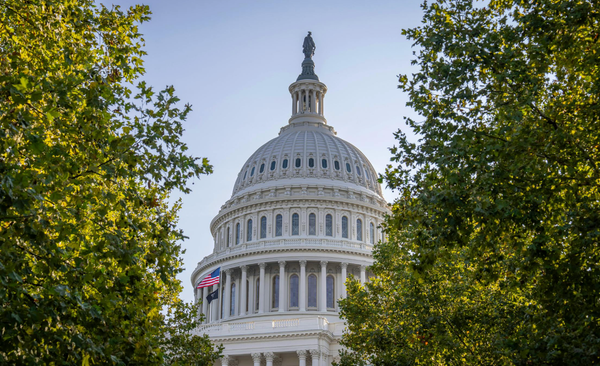How Washington's Insiders Spin a Strike on Iran

Donald Trump decided to launch missiles at Iran at seven o’clock on a late Saturday evening in June. I decided in the aftermath to do a quick scan of how mainstream D.C. policy spaces reacted to the decision. Some shared op-eds decrying the move. Others decided to give Trump the benefit of the doubt, insisting that there must have been a good reason behind it. They have panels, podcast discussions, conversations with foreign diplomats and other debates on potential silver linings to the decision on Iran's regime and its potential fall.
Emily Harding, a director-level scholar at the Center for Strategic and International Studies, argued that “Trump’s decision to bomb Iran’s nuclear sites was probably the right call.” Setting aside the absurdity of using the word probably in such an abrupt decision to use force, Harding’s argument indirectly proves why Washington’s intellectual spaces are by and large incapable of reading the foreign policy room. In fact, they cannot accurately read domestic elites either. “It’s a moment for intelligence officers to shine,” Harding suggests. By Sunday, Trump lieutenants Marco Rubio and J.D. Vance were on television decrying the need to have good intelligence leading up to or following the strikes. Senior officials consistently argue that the strikes set back Iran's nuclear program, even if experts do not believe they are telling the truth or anything close to it. Many nuclear nonproliferation specialists in fact think that the strikes set back arms development by a few months, at most.
This has not deterred international relations sectors from cozying up to Trump. They act in ways similar to counterparts at universities, who erroneously think that flattery can allow their institutions to survive. Harvard and Columbia, along with other elite research universities have learned the hard way that Trump cannot really be reasoned with. He'll take and take if he is not blocked from doing so.
If you read this newsletter and you're not familiar with policy work, you may be wondering: who cares? This seems like some sort of nerd dispute you have with people in D.C. Unfortunately, their work is not self-contained. Media looks to these people for justifications or explanations and their ideas get spread over the airwaves. Their work becomes sources for academics, conversation topics for foreign diplomats and can color the many rich corporations sitting on the boards for think tanks as well. The game is not played for the benefit of the general public, but the consequences can mire the country in diplomatic crisis while decisions are treated like parlor games.
Washington also believes this idea with a quasi-religious fervor: that Trump wields the American state’s authority, and anything authorized by the American state has the possibility for good, even if it is not immediately visible. This belief is consistently one of the most violent ideas in statecraft, but it has staying power that transcends administrations.
Selective and cherrypicked analysis that placate Trump's decision on Iran has a function in this ecosystem, despite its arguments expiring mere hours after CSIS’ external relations sent the piece to publish. This writing and its ilk acts as a backstop for media and officials in legislative and executive circles to enter a hawkish feedback loop. Probable rationale of the right call and affirmation of probably right calls lead to concrete campaigns of violence, surveillance and militarization. When pressed, officials can simply point back to the probable rationale for bombing Iran in the first place. This cycle regularly coasts over the human rights violations of the American state, the legality of what the American state funds in Israel or its own military campaigns, and retroactively assign benign reasons for horrifying consequential decisions.
Probable rationale of the right call and affirmation of probably right calls lead to concrete campaigns of violence, surveillance and militarization. When pressed, officials can simply point back to the probable rationale for bombing Iran in the first place.
Washingtonian leadership insists on these qualified responses that Iran’s destruction is very much in the interests of the United States. Most differences people hold in contrast to Trump hinge on technical differences or strategic choices, and not the abrupt show of force following the dismantling of diplomatic possibility to deter nuclear development. The outcome for this debate also cuts off debate from the public in favor of a conceptual foreign policy pop quiz, where Democratic and moderate politicians will simply formalize the risky warmongering actions Trump decided to take.
For the nongovernmental organizations conceptually propping up the ambitions of Trump’s foreign policy and cheerlead them, self-censorship is a tool of survival and influence that may not work. Rubio has readily cut in-house research of human rights, civil society, public diplomacy and the brain trust of American international aid and regional policy specialization. Whatever delusions lead organizations like CSIS, Brookings, and other nonpartisan institutions to believe they will not be spared the accusations of irrelevance or treason is simply chasing a mirage; that type of hands-off thought leadership in the United States departed the same day as Joe Biden from the seat of power.
To go back to Harding’s conclusions, she found that it was “time to consolidate our gains and lay the groundwork for a more sustainable future. Free from Iranian terrorist proxy networks backed by the continued threat of a nuclear weapon.” The sleight of hand in these words is familiar, and it’s one that has been the lifeblood of American policy discourse. Gains are there to be had for American interests, regardless of however many foreign lives perish in the process or how few long term interests are actually achieved. America first, indeed.



